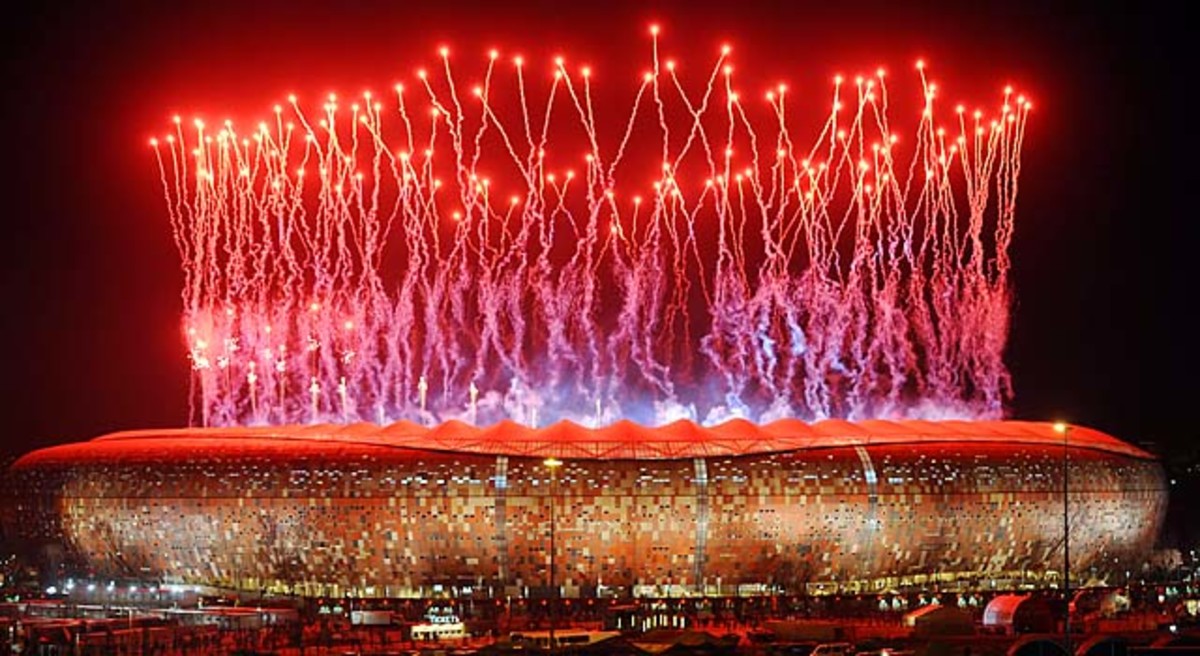
South Africa federation left with $50 million from World Cup

Fireworks light up the sky over Soccer City stadium in Soweto after the 2010 World Cup.
Monirul Bhuiyan/Getty Images
Nearly three years after Spain won the 2010 World Cup final, South Africa's football association was left with $50 million from world body FIFA to develop the game in the former host country.
Danny Jordaan, the World Cup's former head organizer, said Friday that 56 million South African rands ($6 million) of that legacy fund had already been allocated to development programs after the final board meeting of the 2010 World Cup Legacy Trust, which was attended by FIFA secretary general Jerome Valcke.
The remainder would be invested between three South African banks "to make sure that this money lasts for as long as possible,'' former organizing committee chief executive Jordaan said.
Youth leagues, women's football and education and medical projects would be some of the first to receive the money left over after the first World Cup in Africa was paid for and the money remaining given to South Africa by FIFA.
"The funds will be put to good use,'' Nematandani said.
The South African government spent over $3 billion on hosting the World Cup, it said in its final report on the historic tournament in November. FIFA's contribution was $1.298 billion, although the world football body also reported income of $3.65 billion from 2010 World Cup contracts.
Valcke said that the legacy fund money was always intended for grass-roots football in South Africa because "you cannot build a national team from nowhere.''
South African organizers had initially been left with around $78 million for the association, but had already spent the difference on buses and cars for football teams and administrators.
Jordaan defended South Africa's World Cup legacy, with the national team arguably worse off now on the eve of its hosting of the African Cup of Nations than it was in 2010. Questions have also been raised over the fate of some of the World Cup stadiums, which were South Africa's biggest expense when it prepared to host the world's biggest football tournament.
The Cape Town Stadium, the most expensive of the new venues, is rarely used and won't be part of the upcoming African Cup.
"I am convinced that 2010 was a blessing,'' said Jordaan, now a SAFA vice president, stressing it was crucial in "building the South African brand and repositioning our country.''




